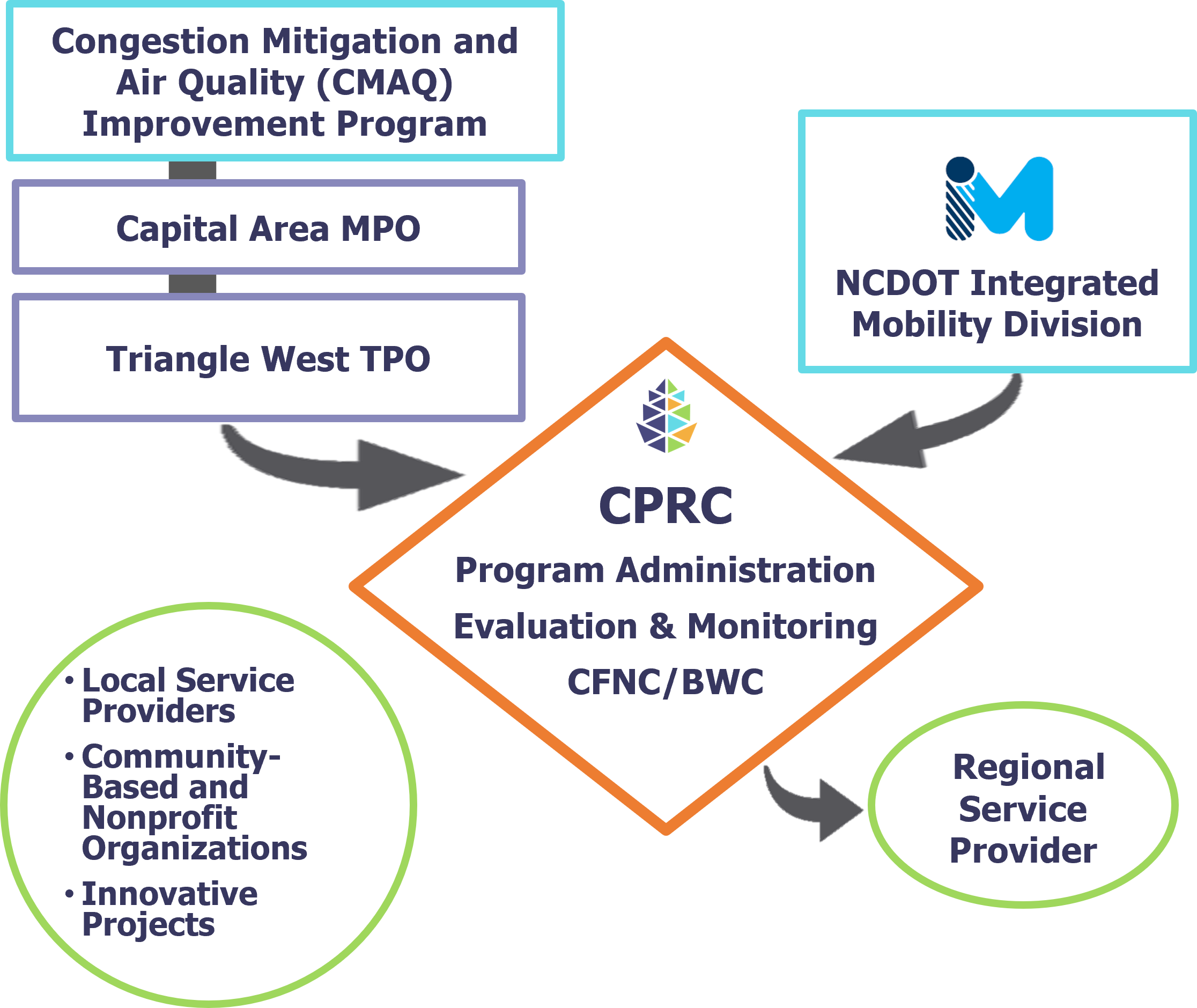Congestion Management Process (CMP) / Transportation Demand Management (TDM)
Congestion Management Process
As a federally designated Transportation Management Area (TMA), the Capital Area MPO (CAMPO) consults with key local stakeholders to develop its Congestion Management Process (CMP). The CMP synthesizes CAMPO’s various and multi-modal congestion management planning efforts into five CMP objectives. These objectives serve as a way to organize CAMPO’s data driven congestion management performance measures and strategies that originate from these planning efforts.
- Congestion Management Process - Adopted FY 2025 Update
- Congestion Management Process Plan (2010)
- CMP Status of the System Report (2025)
- This report is still in its draft form, and will be presented to CAMPO's Technical Coordinating Committee on February 5, 2026 and CAMPO's Executive Board on February 18, 2026.
- CMP Status of the System Report (2014)
- CMP System Status Report (2013)
Transportation Demand Management
Transportation Demand Management (TDM) aims to reduce reliance on single-occupancy vehicles (SOV) for commuting by encouraging alternative options such as carpooling, vanpooling, public transit, biking, walking, teleworking, and flexible work weeks. Central Pines Regional Council (CPRC) serves as the administrator of the Triangle Transportation Choices program that links North Carolina state policy and funding with local and regional service providers.
- Triangle Transportation Choices: Annual Impact Report FY 2023
- TDM Program Goals - Draft Update (2019)
- Triangle Region 7-Year Long Range TDM Plan (2007)
Triangle Transportation Choices Oversight Committee
The Triangle Transportation Choices Oversight Committee is made up of representatives from the three ongoing program funders (NCDOT, CAMPO, and DCHC MPO) and two advisory members (one each from NC Department of Environmental Quality and CPRC). The Oversight Committee reviews proposals and funding requests, provides comments as appropriate, and approves the budget for the program. It also provides strategic direction for the program, establishing program priorities and coordinating the program with other transportation initiatives in the region.
